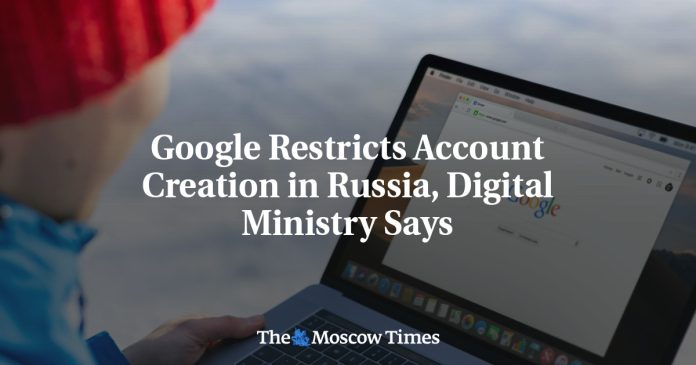In a significant move amidst rising geopolitical tensions, Google has announced restrictions on the creation of new accounts in Russia. This decision comes as part of the company’s broader strategy to navigate the complex landscape of international regulations, user security, and ethical considerations in the face of growing scrutiny over digital governance and privacy.
The announcement was made public following a series of discussions within the company about how to respond to Russia’s increasingly stringent digital regulations and the global implications of its actions. As one of the world’s largest tech companies, Google faces the challenge of balancing its commitment to user access with the need to comply with local laws that often conflict with its core principles of free expression and privacy.
The restrictions primarily affect new users who wish to create accounts on various Google platforms, including Gmail, Google Drive, and YouTube. Existing accounts will remain operational, but new registrations will require careful scrutiny. The decision raises questions about the future of digital services in Russia and the ability of users to access global platforms.
Industry analysts suggest that Google’s move reflects a broader trend among international tech companies re-evaluating their presence in Russia following the country’s increasing isolation from Western markets. As Russia faces economic sanctions and political isolation from many nations, tech companies have found themselves caught in a web of complicated regulatory requirements and geopolitical pressures.
Google’s decision is not without precedent. Other tech giants, including Facebook and Twitter, have also faced similar dilemmas, grappling with the need to protect user data while navigating the complexities of operating within authoritarian regimes. For instance, Facebook has been criticized for allowing the Russian government to access user data and suppress dissenting voices on its platform.
In response to these challenges, Google has stated that it remains committed to protecting user rights while adhering to local laws. The company is working closely with legal teams to ensure compliance with Russia’s regulations, which have been described as increasingly aggressive towards foreign tech companies. These regulations have included requirements for data localization, which mandates that user data be stored on servers within Russia, thereby giving the government greater access to this information.
The decision to restrict new account creation could significantly impact the landscape of digital communication and social media in Russia. Analysts warn that this move may push users towards less secure, lesser-known platforms that do not have the same level of oversight or commitment to user privacy. This potential shift raises concerns about the overall security of digital communications in the country.
Moreover, this restriction comes at a time when Russia is ramping up its efforts to promote domestic alternatives to foreign tech services. The Russian government has been investing heavily in local tech companies, encouraging citizens to use homegrown services instead of relying on international giants like Google and Facebook. This trend could lead to a further fragmentation of the internet, with Russia becoming increasingly isolated from global digital ecosystems.
The implications of Google’s restrictions are manifold. For users in Russia, this could mean limited access to the tools and services that have become integral to daily life. For businesses operating in the country, the inability to create new accounts could hinder communication and collaboration with international partners. Additionally, this move may provoke backlash from users who view it as an infringement on their digital rights and freedoms.
As Google navigates these tumultuous waters, it faces criticism from multiple fronts. Some advocate for stronger stances against authoritarian regimes, arguing that tech companies have a moral obligation to resist oppressive measures that restrict free expression. Others argue that tech giants must comply with local laws to maintain their operations and protect the interests of their existing user base.
This balancing act is further complicated by the growing demands for transparency and accountability in how tech companies operate globally. Consumers are increasingly aware of the implications of their digital choices and are calling for companies to take a stand on issues related to privacy, censorship, and digital rights.
In conclusion, Google’s restriction on new account creation in Russia highlights the challenges faced by global tech companies in an increasingly polarized world. As they grapple with regulatory pressures, user privacy concerns, and ethical considerations, the decisions made by these companies will have lasting implications for the digital landscape. The evolving situation serves as a reminder of the intricate interplay between technology, politics, and individual freedoms, underscoring the need for continued dialogue and advocacy in the realm of digital rights.
